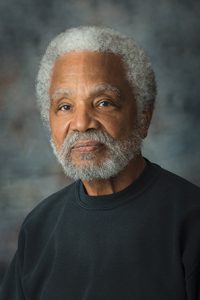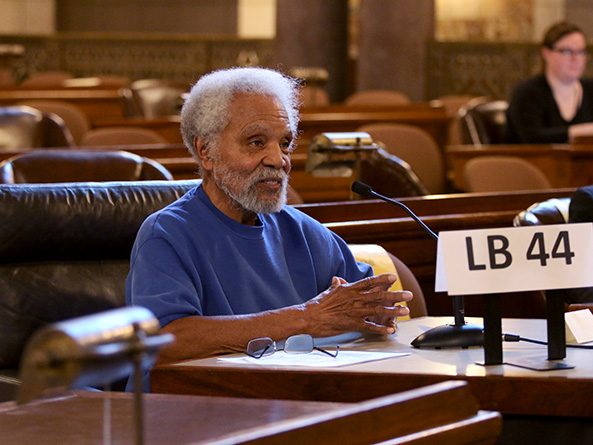Repeal of death penalty discussed
The Judiciary Committee heard a bill March 7 that would repeal Nebraska’s death penalty.

Introduced by Omaha Sen. Ernie Chambers, LB44 would replace death penalty provisions with a sentence of life without the possibility of parole. The bill would apply retroactively to inmates currently serving capital punishment sentences.
The bill would not prevent a sentencing court from ordering restitution, or alter the authority of the state Department of Correctional Services to determine appropriate measures for incarceration of an offender.
Chambers said that there was so much publicity in the months leading up to the Aug. 1, 2018, execution of Carey Dean Moore that no one in Nebraska could have been unaware of the state’s death penalty, yet the crime rate held steady.
“No indication in any state has shown that murders went down as a result of the death penalty being imposed,” Chambers said. “With people having that knowledge—that an execution had been carried out—there still have been murders unabated.”
Amy Miller, legal director of the ACLU of Nebraska, spoke in support of the bill. The Eighth Amendment prohibits cruel and unusual punishment, she said, and there is nothing more cruel and unusual than for the state to use its power to kill one of its own citizens.
“Between the cases brought by the individual death row inmates, cases brought by the ACLU and future challenges that may be brought, it’s clear that the death penalty is broken,” Miller said. “The Nebraska Legislature demonstrated amazing leadership … in repealing the death penalty in 2015. We urge you to demonstrate that same leadership [again].”
Matt Maly, an anti-death penalty advocate, also testified in support of LB44. The state completely abandoned its commitment to open and transparent government in Nebraska, he said, all to carry out one secret execution, which failed at all of its objectives.
“It didn’t make our communities any safer, it didn’t improve the work environment of our correctional officers and there isn’t any evidence it provided any closure to the victims’ families who said publicly before the execution that they didn’t care what happened to the guy and that they just wanted his name out of the headlines,” Maly said.
Opposing the bill was Dave Lopez, speaking on behalf of the state attorney general’s office. The Legislature should defer to the clearly stated will of the people on this issue, he said, which was the 2016 reinstatement of the death penalty through a ballot initiative.
“[Voters] were educated, informed, engaged and aware of the history of capital punishment in Nebraska and of the nature of the vicious crimes that the men on death row had committed in their communities,” Lopez said. “After listening to that debate, a commanding majority of voters in this state … chose to keep the death penalty, notwithstanding this legislature’s earlier vote to the contrary.”
The committee took no immediate action on the bill.


